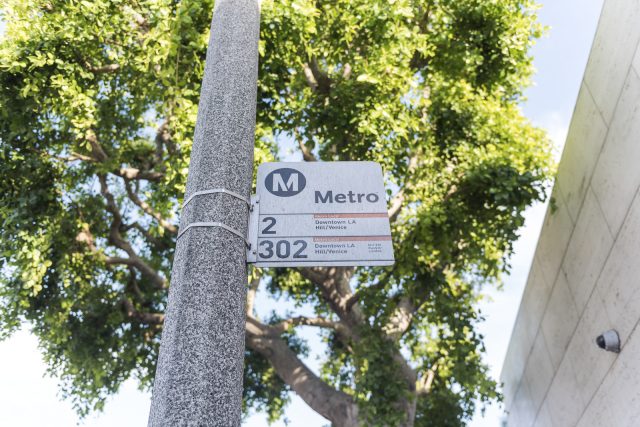Metro will start offering an Uber-like, last-mile transit system by this summer, following the approval of a pilot project by the Metro Board of Directors on Feb. 27.
To start its MicroTransit Pilot project, the Metro Board awarded a $29 million contract to RideCo, a ride-sharing company that provides on-demand transit software and solutions, during a Board meeting Thursday.
Over 50% of trips in Los Angeles are short and driven solo. The MicroTransit Pilot project plans to offer an alternative for such trips by extending ride-hailing technology to regular and potential public transit customers.
Metro CEO Phillip Washington said in a press release that he expects the pilot project will help ease traffic congestion in LA County.
“This pilot project is the perfect way for us to test out a new, more flexible way for riders to make short trips to the store, to school, to the doctor or to connect with our bus and rail lines without adding to congestion on the roads,” Washington said.
The MicroTransit Pilot program service offers rides between 1 and 5 miles. Customers can order rides through a mobile app and pay with their credit, debit or TAP card. Metro’s MicroTransit Pilot’s fares will most likely be less expensive than ride-hailing companies, such as Lyft and Uber, but more expensive than regular bus fares.
RideCo conducted a case study with VIA Metropolitan Transit in San Antonio, Texas, in May where they replaced underperforming bus routes and complemented busy transit hubs with last-mile services.
RideCo reduced the waiting time for buses from an hour to 12 minutes and connected 40% more passengers to major transit hubs.
A Metro press release listed six designated zones where the MicroTransit Pilot project will operate – the first operational zone will be in effect this summer in the Watts/Willowbrook zone. The service will monitor demand and collect results during its successive operations between this summer and fall 2021 in the San Fernando Valley, Inglewood, Highland Park, Altadena and also around UCLA.
Before approving the MicroTransit Pilot project, the Metro Board offered a chance for public transit representatives and advocates to voice their opinions on the service.
Sebastián Hernández, the senior planner for the city of Pasadena, said he felt frustrated that Metro staff did not incorporate input from several meetings with his office.
“We’re disappointed to see that the input we have provided is not reflected in what the board is voting on today,” Hernández said at the board meeting. “We asked them that Pasadena be considered as a true partner in this effort and that the process be transparent and that our input be thoroughly considered.”
Hernández did not disclose his office’s inputs during the board meeting, but Pasadena is one of MicroTransit Pilot’s six designated stops rolling out in summer 2021, along with Altadena.
Diana Chang, the Culver City transportation planning manager and a UCLA alumna, said she supported the MicroTransit Pilot and that Culver City would replicate a similar model.
“As part of the west side, Culver City is one of the most congested areas in the county,” Chang said at the board meeting. “Culver City has been exploring piloting a micro transit service as one of the strategies to enhance mobility service options and getting people out of their cars.”
Representatives from Altadena and the neighborhood of Westwood expressed support for Metro’s endeavor and applauded the promises of its last-mile services for schools, hospitals and senior citizens. However, some wanted the board to address the protests against MicroTransit Pilot’s implementation, such as Hernández’s.
Eli Lipmen, president of EmpowerLA’s Board of Neighborhood Commissioners, said he was going to use the service a lot with his family in Westwood. EmpowerLA serves to better connect LA’s 99 neighborhood councils’ needs with the city government. Lipmen encouraged Metro to establish private contracts with larger institutions, such as Cedars-Sinai, Universal Studios and USC.
“There’s so many opportunities for an enterprise, for Metro, to actually make money off this program by contracting with big employers like USC, for instance,” Lipmen said. “Let’s move this forward.”
The MicroTransit Pilot service is the first project of the Twenty-Eight by ‘28 Initiative created by LA Mayor Eric Garcetti. The initiative hopes to finish 28 transportation projects in Los Angeles County before the 2028 Summer Olympics.

